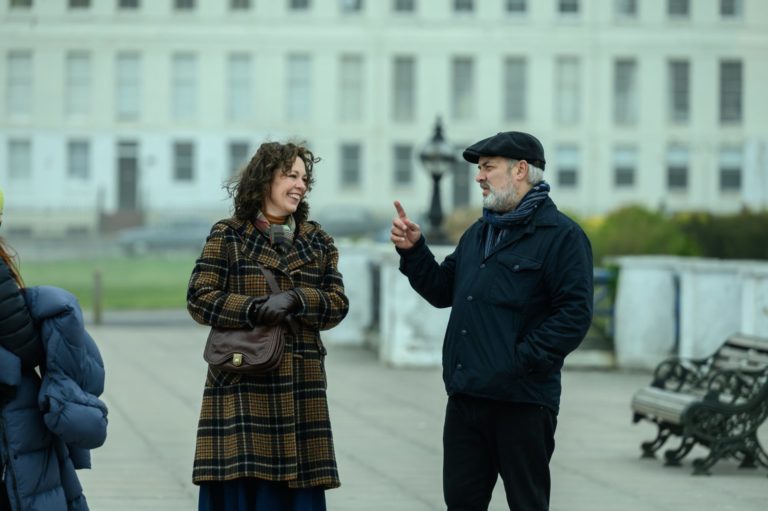
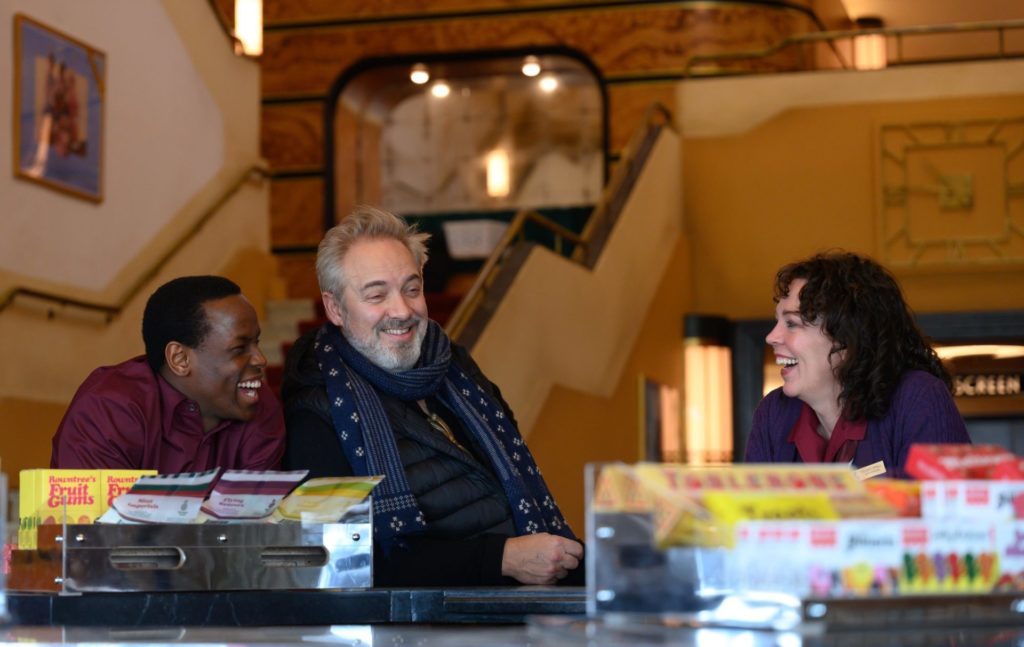
Q: One of the main themes of your film is “the magic of cinema”. Could you take us back to the point in your life when you were inspired by cinema, and what film was that?
SM: I guess the most important one for me was “Close Encounters of the Third Kind“, which I saw when I was probably about twelve, in Leicester Square in London. I remember really clearly that it starts in darkness and this low rumble that gets louder and louder, and then eventually “Close Encounters”. And the whole floor of the cinema was rumbling and I could feel it shaking, and I could feel the excitement in the crowd and [the cinema] was full.
Yeah, that was when I got hooked on cinema on the big screen. But it wasn’t really what made me want to make movies. I never even contemplated at age twelve that I was going to make a movie. I just was aware it was something I loved.
Q: You said Hilary is based on your mother and Olivia Colman was your first choice for the role. Did you have any Plan B if she had to say no?
SM: Actually, no. Someone asked me that today, and the answer is no, I really didn’t. And I’m not saying this to be flattering to Olivia, but I think if she’d said no I might not have made the movie at all. Because at that point — I’d written it in lockdown and it was a small movie, and I was thinking maybe I should do this. But if she had said no, I think maybe it would have knocked me off my stride.
The key people for me — my wife, Olivia, Roger Deakins, Pippa Harris, my producer — they all said they loved it, and that made a big difference. But if one of those people had said “I don’t like this so I don’t want to do it”, I think I might have ended up not doing it at all.
Q: The film “Cinema Paradiso” [dir. Giuseppe Tornatore, 1988] comes to mind because this film has a wonderful projectionist. When you were a young writer, you would read the critics every morning. But after “The Room” [dir. Tommy Wiseau], you stopped. Why did you read the critics every day, and then why did you stop?
SM: You’re right, I did stop reading the critics. I didn’t think that much about “Cinema Paradiso”, which is a masterpiece. But I didn’t design this movie as a hymn to the movies or the “magic of the movies”, because of this figure that perhaps has been imposed on the film.
For me, the root of the film is about mental illness, about Hilary’s internal struggle with mental illness. And an external struggle which is a character struggling because of the political situation and the color of his skin. So the internal and the external struggles collide in the movie. That’s what the movie is about.
The cinema becomes a crossroads where they meet, and where those two people come together. So there is also a discussion a little bit about cinema and its place in the world, which obviously is something that we’re thinking about a lot at the moment.
The critics? I stopped reading the critics in the late Nineties. I much prefer not knowing. You’re always aware whether some things go well or less well, but as you get older and you make more films, this seems to have less importance. You want people to come in and see the movie, you want people to love the movie, obviously. But for me, films are like your children: some go to the top of the class immediately, and some don’t do so well, but that has no bearing on what they do when they leave school.
Movies go on and have a life, it’s nothing to do with immediate success or failure. They just drift out into the ether and people find them. As a director, you see when you get your residuals. When you see how many people watch your movies, sometimes it’s not the obvious ones that they see. Often it will be [like] “Skyfall” will be the biggest. But then “Jarhead” was a big failure at the time; nobody went to see it, it didn’t get very well reviewed, but it’s been found by the culture and people seem to love that movie.
So it’s interesting that it doesn’t always go as you expected. What’s nice about movies is that they have a life. They’re not coming from a theatre where a play ends the moment it finishes and nobody ever sees it again. With movies, even though sometimes people have seen them in the cinemas, particularly now, they go straight on to a streaming service and millions of people are seeing them. So you just have to figure you put it out there, and you hope people are moved, and then the rest is up to them.
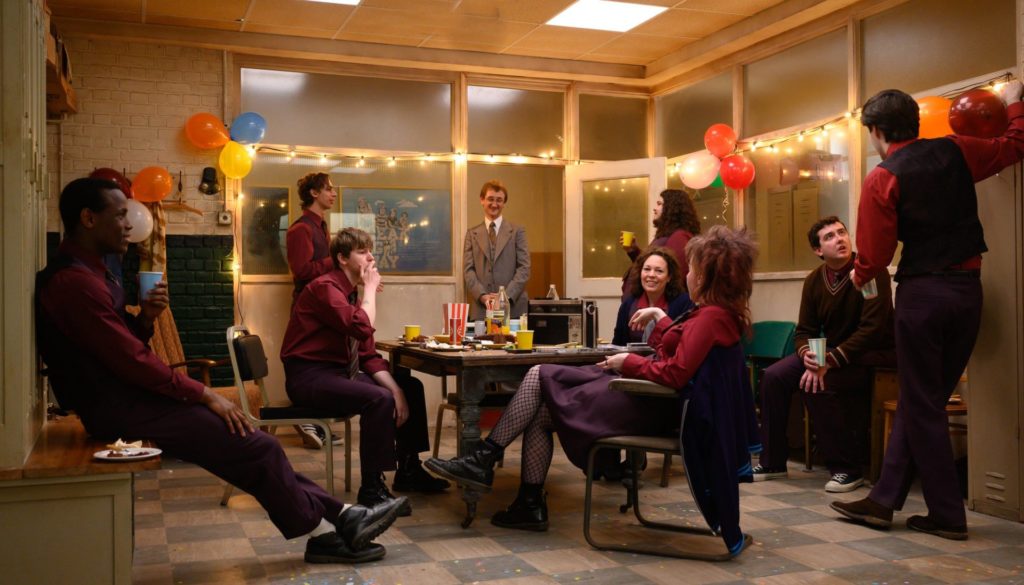
Q: The theater is very much like a character, in a way, and you recreated the lobby for the theater. Could you talk about finding the right location for the theater?
SM: Yeah, the movie was based on a cinema I used to go to on the seafront when I was a teenager, but it was a much smaller one than the one I found. Then Mark Tildesley, the production designer, found this amazing Art Deco “palace” on the seafront in Margate. It gave the movie a whole dimension — the scale of it, the magnificence of it, the emptiness of the abandoned bar.
So I moved into Margate for a week and I rewrote the script around what the locations gave me. You sometimes have a nice experience with movies where if you find the right location, it starts talking back to the movie and it starts influencing the film. The lobby wasn’t quite big enough, or the right shape, so on an empty lot three doors down, we built our own lobby that looked out on the same view. So we could use both the real cinema and the lobby [that we built].
Q: Since you’re addressing both racism and mental health, is there also a political subtext here?
SM: The script was born and created at a time of reflection, and a time when the world was changing during the pandemic, when there was a big racial reckoning in the world, with Black Lives Matter. There was a big concern that cinemas were dead forever, that we would never go outside ever again, and we’d never be in a dark room with strangers. And in a great upsurge of mental health. So all those things found their way into the movie.
But they found their way in in a kind of unconscious way. I wasn’t trying to make points, it’s not a crusade. I’m not trying to lecture an audience. To me it was about memory, it was about a time of great upheaval, but also a time of great creativity. My musical tastes were formed — I felt it was my time, as a teenager, and I wanted to revisit that time in all its aspects.
Q: This is quite different from your last movie, “1917”, and now there is your superhero satire on HBO. Is it hard to jump between genres and formats?
SM: I’ve always found it easier to jump between genres because I’ve always wanted to disrupt what I’d just done. I don’t like getting trapped in patterns. The only time I’ve ever done that is when I did two Bond movies one after the other. In between I tend to do theatre as well.
I’ve always loved and enjoyed the fact that as I get off the train in this movie, another train is coming in the other direction, it’s speeding and I have to jump on that. I like the feeling of disruption that is involved.
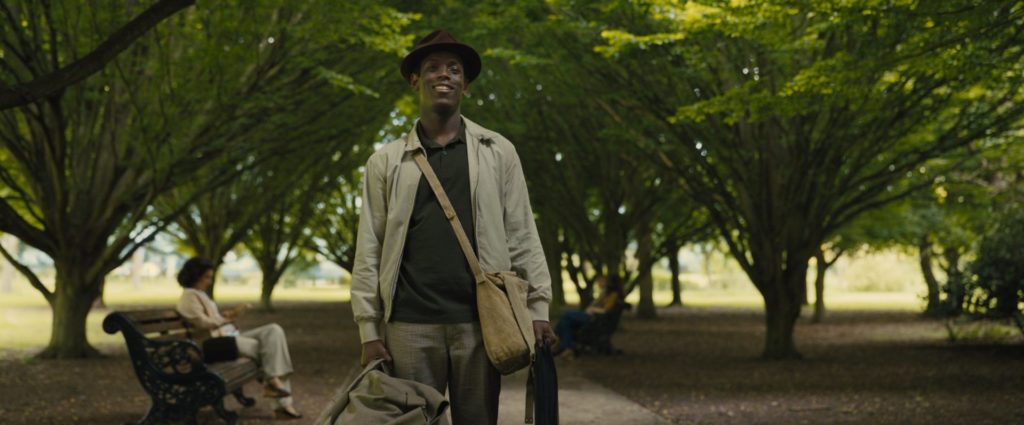
Q: Olivia was talking respectfully and with care and emotion about the process of working on the character Hilary with you, considering it’s so personally rooted in things that you went through. How was the process of making something personal as both the director and as the person who was involved in the experience?
SM: I think it’s very difficult to retain objectivity when you’ve written it yourself and it’s semi-autobiographical. It’s a daily struggle between the objective and the subjective. I tried to remain objective but I found it very difficult. I don’t think I’m a natural writer-director. I think I’m a natural director — I say that entirely immodestly. But I feel I love the work of others and I use it as a springboard, and I love the energy of other people’s words.
I come from the theatre and in the theatre the playwright is the central figure, in a way. So it was not a natural fit for me and I struggled with that push-pull. And also, as you correctly say, there are two me’s in the film. One is the childhood me observing my mother in her breakdown, and the other is the teenage me in the early Eighties watching those movies, hearing that music, being amongst that political landscape with great racism problems, and unemployment and what-have-you.
So yeah, I think it’s interesting, and maybe as I get further away, I’ll begin to understand where it fits in my life. But right now, I feel like I’m still too close to it. It was something that just came out of me, bubbled out of me. What I can say is it was a great experience making [the movie] with the actors. I loved working with Olivia: I loved her lack of fuss, and her clarity and her unbelievable talent. It was like a blowtorch: it’s just suddenly “ON”, full, or it’s off, there’s nothing in between. You don’t build up to it, it’s like a force of nature. And that was very exhilarating for me, in that particular role.
Q: What have you learned from writing Hilary and Stephen?
SM: There was a good deal of wishful thinking in the film. Hilary’s journey differs from my mother in one crucial respect: that she’s able to talk about what’s happened to her. So I think what I want to take away from it is that there’s always a possibility of rebirth. The film ends with a poem by Philip Larkin, “Begin afresh, afresh, afresh,” he says. To me, that’s [it]: out of the ashes of the old grows the roots of the new. That feeling is very important and I think I learned to embrace that in this movie.
Q: How has this movie changed or affected you?
SM: I don’t know how it’s changed me, to be honest. I think it’s made me less likely to do it again. I’m less likely to write and direct a movie this next time around.
It’s changed me because I feel I’ve gotten something off [me like] shedding skin. I’m not quite sure I’m far enough away from the process to be clear about how it’s changed me. But I feel lighter having made it.
Q: Thank you.
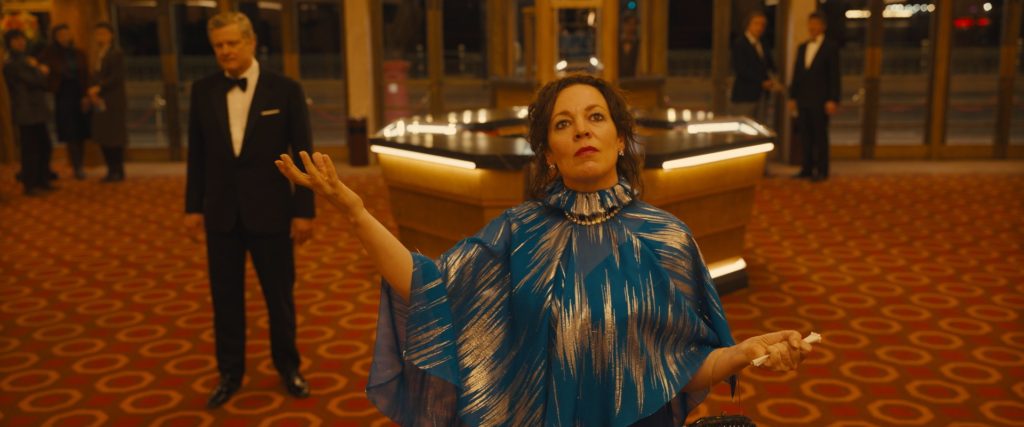
Check out more of Nobuhiro’s articles.
Here’s the trailer of the film.

